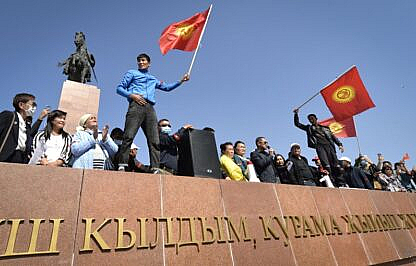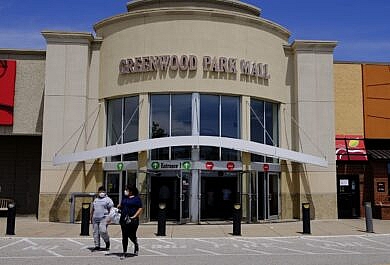Unrest in Kyrgyzstan has led to the Prime Minister’s resignation. What happened?
Summary
The future of Kyrgyzstan’s leadership and governance remains unknown as violence swirls following parliamentary elections at the beginning of the month.
- When election results revealed that the current president Sooronbay Jeenbekov had been re-elected, alongside other politicians with close ties to his party, Kyrgyz citizens suspected that the election had not been conducted freely and fairly.
- Allegations of bribery and corruption began to fly, and protests began on the evening of the election.
- The government deployed security forces to suppress the demonstrations, and violence escalated. On the night of 6 October, 1 person was killed and 600 injured in the clashes between protesters and government security forces.
- The clashes with government forces escalated tensions further, and protesters stormed the federal capital building.
- The next morning, the election commission annulled the results of the 4 October election.
- Soon after, Kyrgyzstan’s Prime Minister Kubatbek Boronov tendered his resignation and the President promised that he would resign as president once a new Prime Minster took office.
- The recent unrest follows mounting dissatisfaction with Kyrgyzstan’s government. Since the beginning of the COVID-19 pandemic, the economy has taken a serious downturn and millions of Kyrgyz citizens have been affected. Even before the pandemic, widespread government corruption was a serious issue in the country.
- As the election committee decides when to hold a new election, a power struggle mounted between the President, pro-government parties, and opposition parties. Last week, former president and now-opposition candidate Almazbek Atambayev was arrested at a demonstration in Bishkek.
- On 10 October, a new Prime Minister was named. Sadyr Japarov, previously an opposition candidate and protester, was elected by parliament. Japarov was previously involved in anti-government protests which led to the kidnapping of a provincial governor. He was in prison serving kidnapping-related charges until he was released to serve as prime minister.
- On Thursday, President Jeenbekov resigned and called for peace as protests continued to escalate.
- On Friday, Japarov declared himself the President of Kyrgyzstan, and was later confirmed by Parliament. He will remain acting president until a new election He will continue to act as both President and Prime Minister in the meantime.
![]()
- Reports that it is the duty of the United States (and the West more broadly) to stand behind Kyrgyzstan. CNN points out that Kyrgyzstan is the only democracy remaining in Central Asia, a region of great interest to Russia and China, and that therefore it is in the United States’ best interest to support it.
- Highlights the gravity of this situation, which Vox suspects will continue to escalate and may have major regional and geopolitical ramifications.
![]()
- Similarly emphasizes the geopolitical and strategic gravity of attaining stability in Kyrgyzstan. Fox News writes that Kyrgyzstan is one of the poorest nations to emerge from the Soviet Union, and Russia still has a major influence in the country.
- Decries the ongoing corruption in Kyrgyz government using strong language. A headline in Breitbart news calls Japarov an “escaped inmate“.
© Evelyn Torsher, 2020






